An hour later, Culundis and Prince Missh stepped out of the express elevator onto the ninety-fifth floor of the Royal Palace, the dining quarters of Sheik Hyyad bin Bakkrah al Quozzohok, thirty-seventh Emir of Amnah, the Prince’s father. Missh had changed out of the expensive T-shirt he had been wearing earlier in the day into a cobalt-blue djellabah and traditional head-dress; he was, as was customary in his father’s quarters, barefoot. Culundis was in a cream silk Nina Ricci suit, a bright yellow silk shirt and a green-and orange striped satin silk tie. On Missh’s tactful suggestion, he too was barefooted, and not looking totally at ease about being so, in spite of having spent his entire childhood in that state. They stepped out of the elevator into a small marble hall, in the centre of which was a huge arch, with armed guards in djellabas standing on either side. They walked through the arch into a large windowless ante-room. The room was dark, with light provided by a few open candles; the walls were hung with tapestries, which could scarcely be seen, and the marble floor was covered in a magnificent Persian rug. A servant immediately brought them a tray with two cups, each containing thick sweet coffee. Culundis frowned in disappointment at not getting an alcoholic drink, then remembered the blonde and felt better. The sweet smell of roasting meat filled the room. As they drank their coffee, Missh pointed out to Culundis the history of the family that was depicted in the tapestries; Culundis grunted politely, and wondered if it would be rude for him to light a cigar. He peered through the gloom and the works of art that had taken scores of women hundreds of years to complete and decided, quietly to himself, that once you had seen one damned Arab wandering around the desert, you had seen them all.
A servant walked in from the next room, which was again connected by a huge archway, stood in the centre of the archway, and bowed slowly.
‘Come,’ said Missh, ‘my Father is ready to receive us for dinner.’ The two men walked through into a much larger, but not much brighter-lit room.
‘How come there aren’t any windows?’ Culundis whispered.
‘My father does not like anything to distract from the food and the company. Elsewhere in his quarters, there are many windows.’
The floor on one side of the room was bare marble. The floor on the other side had thick carpeting and was richly scattered with cushions; seated in the midst, on an enormous pile of cushions, Culundis could make out a frail-looking old man, very thin, with long bony arms and long bony legs that protruded from his robes.
Missh went up to his father, bowed down, and the two embraced each other; then Missh stood back and bade Culundis walk forward. ‘Father, you remember Mr Culundis?’
Culundis stood awkwardly; Missh hadn’t briefed him on what to do. The Emir opened his bony arms, and Culundis leaned down and received a short, cold embrace. The Emir bade Culundis sit, as with all guests, in the place of honour on his right, and his son to the left.
‘It is an honour to be here once again, your Highness,’ said Culundis. ‘You look well.’ The Emir nodded politely, and stared fixedly ahead. Culundis soon saw why. The food was arriving. Eight servants staggered in holding a massive cauldron that was about four feet wide, although only about two and a half feet high; there was a thick rim of rice, from the centre of which rose a pyramid of dissected mutton, topped with four sheep heads, from which the tongues curled outwards. Two more servants followed with a huge steaming pitcher, from which they poured a gravy sauce containing the offal over the pyramid.
The Emir leaned forward, plucked the tongue from one head, turned to Culundis on his right, and proffered it. Culundis took it, nodded graciously, looked at it, and took a small nibble. There were only two things which he absolutely loathed to eat; one was apricots, the other was tongue.
Culundis watched the Emir lean forward, cut some strips of meat off a shoulder, make a small ball with some rice, lay the strips around the outside of the ball, and place the whole assembly in his mouth. Whilst his attention was diverted, Culundis slipped the rest of his tongue into his jacket pocket with one hand whilst pretending to push it into his mouth with the other; the Emir, chewing slowly, turned to look at his son’s guest. Culundis made large, slow, chewing motions with his mouth, and the Emir looked satisfied that his guest was content.
He was a strange-looking man, thought Culundis, in complete contrast to his tall and handsome son; he was no more than five-foot four, thin as a rake, with an almost birdlike face. The face was dominated by a large hooked nose, on either side of which were half-moon shaped eyes which darted nervously about every few seconds, then stopped for some moments whilst the heavy lids slowly closed together, then opened again. Those eyelids were about the only thing father and son had in common. Both had that long slow blink. It made the son look arrogant, and the father like a crow that was digesting a worm. The bird-like face of the old man was even more accentuated by his bony arms and legs, so thin they were almost scaly. Neither father nor son spoke, but concentrated on hacking bits of meat and packing their rice balls. Culundis looked around for a knife. The Emir noticed he had stopped eating, leaned forward, and pulled out another tongue, again handing it to him with a gracious nod. Once more Culundis went through the motions of eating and then slipped it into his jacket pocket. The remaining two tongues went the same way, and then Culundis relaxed a little; he hoped the stain wouldn’t show too badly through his white pocket, and he looked forward to a morsel of the lamb he could enjoy. He saw the Emir looking at him patiently, waiting until he had finished chewing. Culundis completed, for the fourth time, the motions of finishing off a tongue, and licked his lips, whereupon the Emir clapped his hands together and the servants came in and removed the cauldrons. Culundis began to feel extremely glum. Finally the Emir spoke:
‘I think we have met before, somewhere?’
‘We have, your Highness; in 1975 I came to your country to discuss supplying you with arms for your liberation from the United Arab Emirates. I came to see your General Mamoud Hayassa, and I was introduced to you whilst I was here.’
The Emir nodded disinterestedly. The servants brought in finger bowls, dry towels, and then perfume to spray on the hands of the three diners, and then tea was brought in. The Emir seemed in no mood to talk further, and so the three men sat in a strained silence. After some minutes he turned to Culundis. ‘You come from Greece, I believe?’
‘Yes, your Highness.’
‘I have not visited Greece.’
‘You would be most welcome, should you ever wish to come,’ said Culundis.
‘I shall never wish to come,’ said the Emir emphatically. He turned to his son and gave one long positive nod. It was the signal for his son and Culundis to leave; Missh stood up, and bade Culundis to stand. The Greek couldn’t get to his feet fast enough.
Neither Missh nor the Greek spoke to each other until they had stepped out of the elevator back in Missh’s quarters. ‘My father does not speak much these days,’ said Missh.
‘No,’ agreed Culundis.
‘He thinks all the time about modernization, about new buildings, new roads, new industry; he forgets that there are also people.’ Missh pulled two huge brandy snifters out of a cupboard, handed one to Culundis, and filled it a quarter full; he then passed him an Upman’s corona, and took one himself. They settled themselves into Missh’s massive white velvet sofas.
‘Is he not aware of the feelings that are brewing?’
Читать дальше

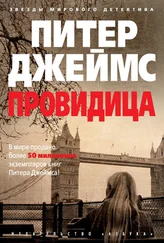
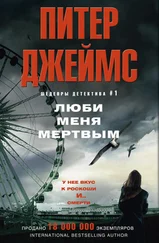
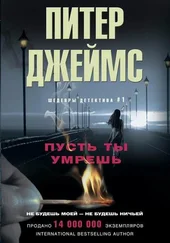

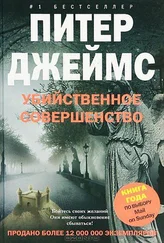
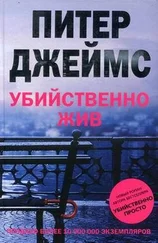
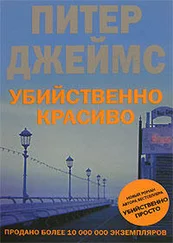
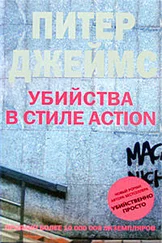

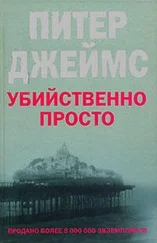
![Питер Джеймс - Искушение [litres]](/books/423638/piter-dzhejms-iskushenie-litres-thumb.webp)
![Питер Джеймс - Wish You Were Dead [story]](/books/430350/piter-dzhejms-wish-you-were-dead-story-thumb.webp)